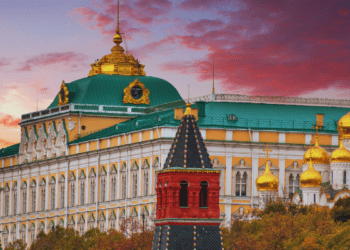In today’s Globe & Mail, MLI’s Brian Lee Crowley lays out how Canada can best direct foreign aid, by improving remittances and removing trade barriers.
A smarter way for Canada to do aid
BRIAN LEE CROWLEY, Special to The Globe and Mail
Published Thursday, May. 02 2013
The recent federal budget’s elimination of the Canadian International Development Agency, whose activities will be subsumed under the Foreign Affairs department, has attracted relatively little notice. That’s unsurprising, given how little the average person cares about what seem to be abstract bureaucratic machinations.
But if done right, this move could prove a courageous opening salvo in an effort to get more value for the world’s poorest, as well as for Canadians, out of our development spending and broader foreign policy.
Canada does aid poorly. For example, administrative costs as a share of the aid dispensed are among the highest in the Organization for Economic Co-operation and Development. Focusing our aid efforts on fewer developing countries helps, but is not enough.
Foreign aid generally has fallen into disrepute for reasons I observed first-hand working for the UN in Africa, such as corruption and clock-watching, self-serving bureaucrats. The developing consensus is that the best antidote to global poverty is economic growth rather than aid dependency.
Aid efforts are unlikely to disappear completely, but many knowledgeable observers have pointed to two areas beyond aid where Ottawa can take concrete steps to make a lot of vulnerable people in developing countries better off, while also improving Canada’s economy.
These two magic bullets are remittances and trade.
Lack of interest in the value of remittances in reducing developing world poverty has always astounded me, but it is positively inexplicable when set against the development power they represent. According to trade expert Danielle Goldfarb, writing several years ago in a report for the Canadian Defence and Foreign Affairs Institute, money sent by migrants back to their origin countries was at least three times the value of global foreign aid, grew at a much faster rate than aid flows, and reduced both the incidence and severity of poverty in developing countries.
We know a lot more about our official foreign aid program than we do about remittances from people in Canada to their home countries, but research shows that remittances have a big impact. Take India, one of the largest source-countries for immigrants to Canada. India is the world’s biggest remittance recipient. Total remittances from overseas Indians, worth more than 3 per cent of Indian gross domestic product, exceed total Indian government spending on health and education, and their influence is particularly noticeable in regions that have had the greatest outflow of emigrants.
What explains this phenomenal remittance growth? According to Muzaffar Chishti of the Washington-based Migration Policy Institute, it is partly that the flows are more transparent as remitters make more use of official channels (terrorism-related concerns have put informal transfer networks under unfavourable scrutiny) and as greater competition emerges in the official money-transfer market.
There has also been an important shift in emigration patterns to high-skilled technology jobs (Indian software engineers and IT management experts, for example). This underlines the importance of emigration to the source country: The higher the earning power of the emigrant, the greater the impact back home. The human capital of India has not being “looted” by Canada or the United States; it has allowed Indian investments in education and skills to earn a far higher return for India than it might have if those emigrants had stayed home.
The second way to help the world’s poor is to get rid of trade barriers. According to Ms. Goldfarb, eliminating all trade barriers in rich countries would result in income gains to developing countries double that of global foreign aid. Canadian consumers, in turn, would benefit from lower prices.
On the trade front, however, Canadians remain prisoners of protectionist special interests. Clothing is made more expensive for Canadians through tariffs and quotas on the imports of textiles and apparel from many developing countries, depriving those places of desperately needed jobs and income.
Canada also sacrifices prestige and bargaining influence at the international trade table by continuing to protect agricultural marketing boards, a policy that costs the average Canadian family hundred of dollars annually in higher food prices.
Fiddling with the bureaucracy that administers our formal aid program is fine, but if Canada really wants to help developing countries, we know what to do: Welcome more immigrants, make it easier for them to transfer their remittances home, and lower our trade barriers.
Brian Lee Crowley (twitter.com/brianleecrowley) is managing director of the Macdonald-Laurier Institute, an independent non-partisan public policy think tank in Ottawa.




